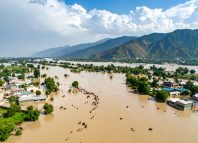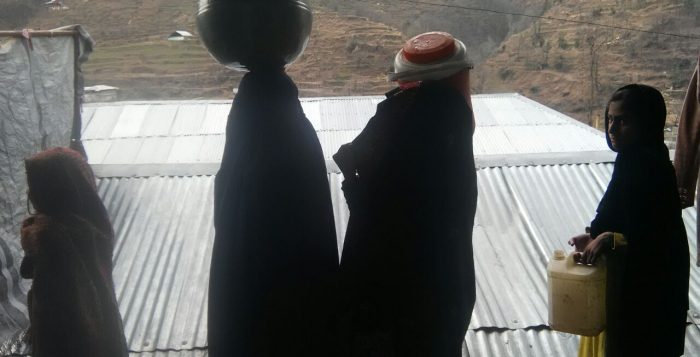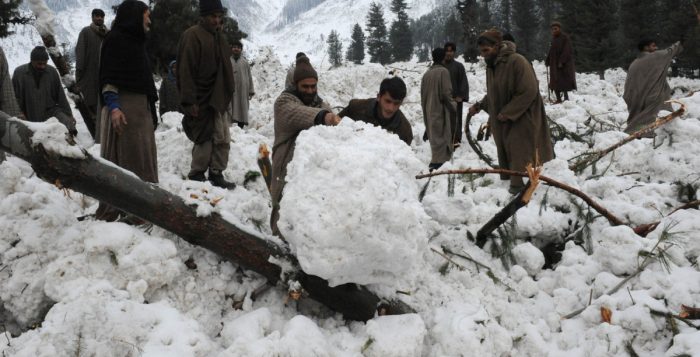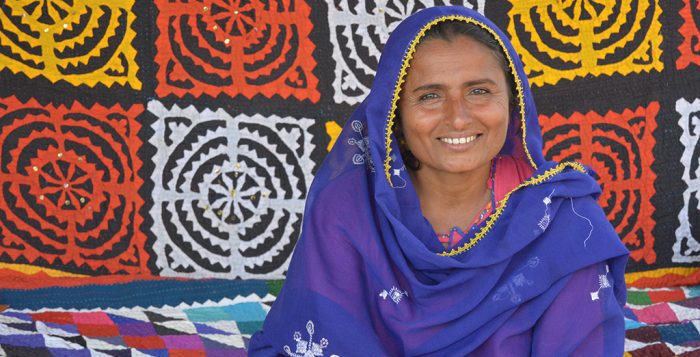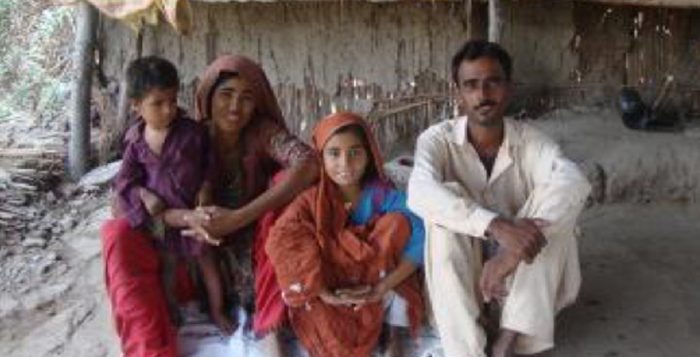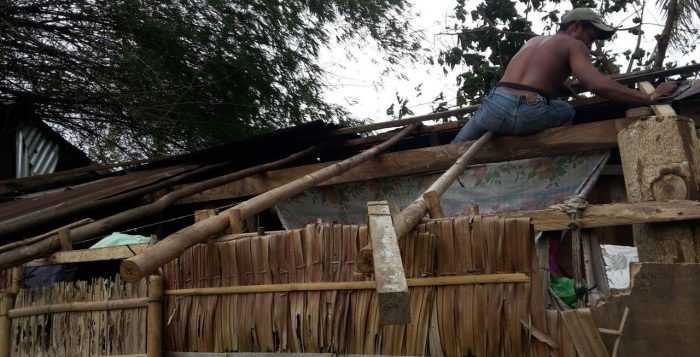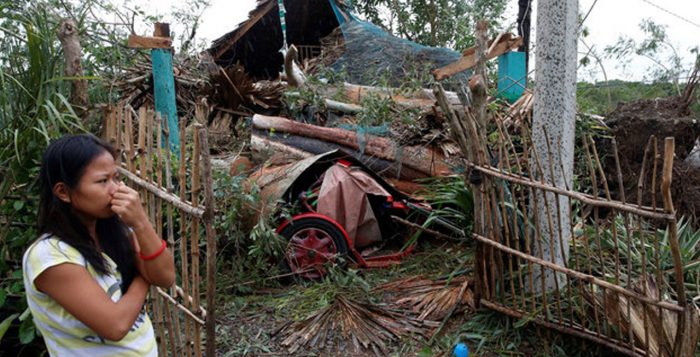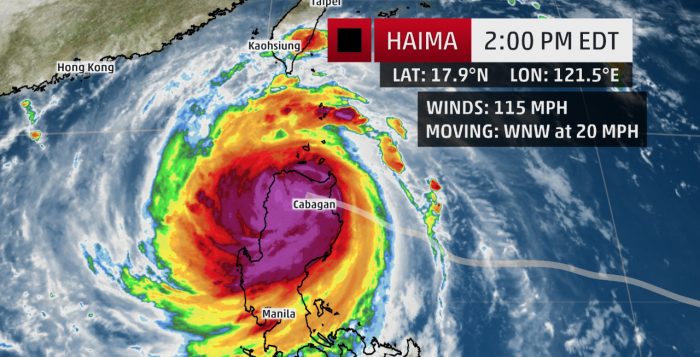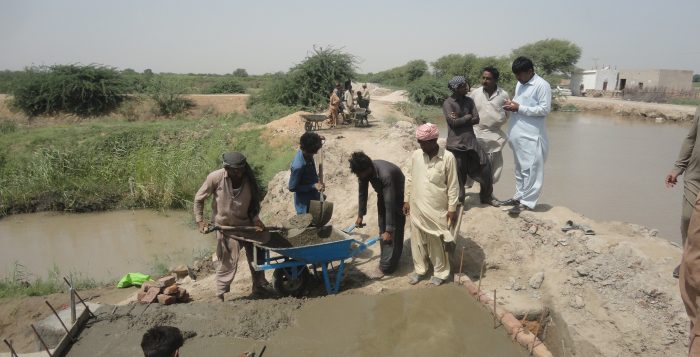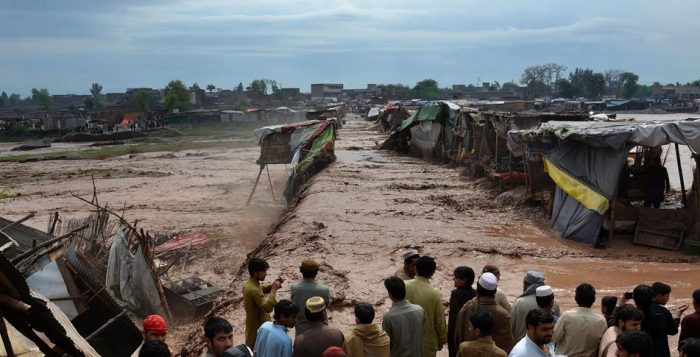Remote and rural areas affected by recurrent natural disasters often suffer the most when it comes to their recovery, rehabilitation and development. The 7.5 magnitude earthquake epicentered in the Hindu Kush range in winter of 2015 severely shook Pakistan’s mountainous northern belt, killing nearly three hundred people. In its aftermath, more than 14,000 houses were severely damaged or completely destroyed; community infrastructure was unusable and livelihoods were diminished. Almost a year later, the poor socio-economic life of the inhabitants remained largely unchanged.
High altitude villages perched on the steep mountain slopes of district Shangla in northern Pakistan were severely damaged by the earthquake. One of the hardest hit areas was Village Tanshit; mainly comprised of steep, rocky terrain dotted with 221 traditional, rural homestead compounds. Multiple families reside in each compound. After the earthquake, the community’s most basic infrastructure and facilities, which had been built with great effort and years of savings, were lost. The village’s sole water supply scheme became one of the earthquake’s most significant casualties.
For the next nine months after the earthquake, the local women had to make a forty five minute climb on foot to a mountain stream and return with as much water as they could carry everyday. Families living in mountain village compounds have strong traditional, social and cultural codes for the protection of women, even for those undertaking daily domestic responsibilities. This usually means that the women stay very close to their homes. However, to access water, the women of Tanshit had to travel a long distance carrying water on their heads through wild and rocky mountain treks. As the water carried by a single person was insufficient for the entire family’s needs, sometimes the children were tasked with carrying water from the streams on their way back from school. This was dangerous and had to be done in daylight. In warmer months, these communities became very vulnerable to waterborne diseases as hygiene could not be maintained while carrying and storing this stream water.
“Safe drinking water and adequate sanitation are crucial for poverty reduction, crucial for sustainable development and crucial for achieving any and every one of the Millennium Development Goals,” Ban Ki-moon, UN Secretary General
The human right to water and to sanitation constitutes the right of every individual, without discrimination, to sufficient, safe, acceptable, accessible and affordable water and sanitation for personal use. To ensure this right, in 2016 Community World Service Asia, in partnership with Norwegian Church Aid and ECHO, assessed the village Tanshit’s water system and was selected as one of the twenty communities under its’ integrated WASH, Shelter and Cash-for-Work programme. Technical assistance, construction materials and paid labor opportunities were provided to help villagers to restore their water system, reconstruct latrines and bathing facilities, and repair their homes. A village WASH Committees was formed to articulate the basic communal needs according to the project’s objectives and scope.
The project team arranged hygiene sessions with the village women’s group and sensitized them on hygienic practices through Child Hygiene and Sanitation Training (CHAST) and Participatory Hygiene and Sanitation Transformation (PHAST) approaches. A pre-KAP (Knowledge, Attitudes, Practices) survey was also conducted to gauge the pre-existing or baseline hygienic practices of the families and to help demonstrate subsequent gains.
To ensure ownership, each village’s drinking water supply scheme was selected on the recommendation of village committees. After a technical feasibility assessment conducted by members of Community World Service Asia’s engineering team, Tanshit’s water supply scheme was rehabilitated, with additional resources, successfully. The water source was reconstructed, protected and pipelines were installed throughout the village. The community contributed additional labor and materials as well to this reconstruction.
Today, Tanshit’s drinking water supply scheme supplies clean, safe and ample water to 221 households as per Sphere standards. The risk of waterborne diseases has been decreased. The social protection of women has been ensured and their cultural sensitivities are preserved. Around 1,200 individuals are undertaking more hygienic practices that will significantly contribute to maintaining healthier families. The project team also mobilized the local community towards the maintenance and upkeep of their water system through a local community savings plan. They have also begun a small, intra-village savings and lending activity to commonly support their lowest income groups. This will enable every community member to maintain their compound’s connections to the scheme.

